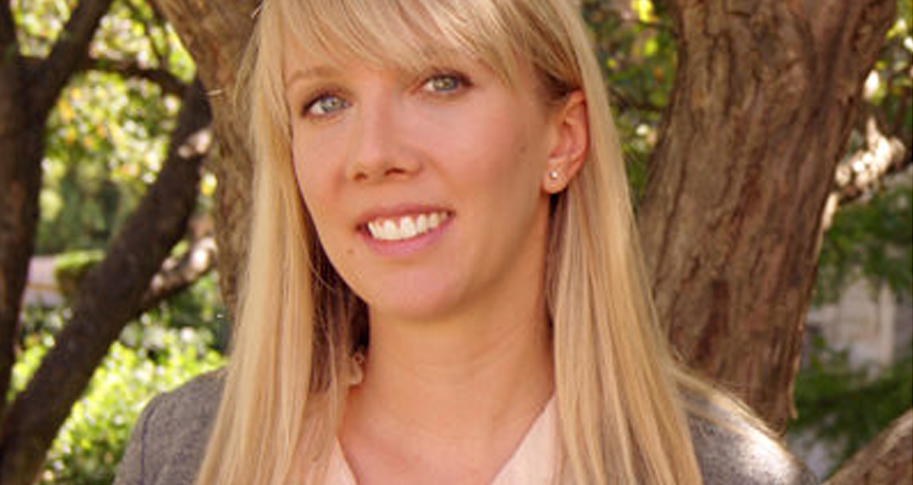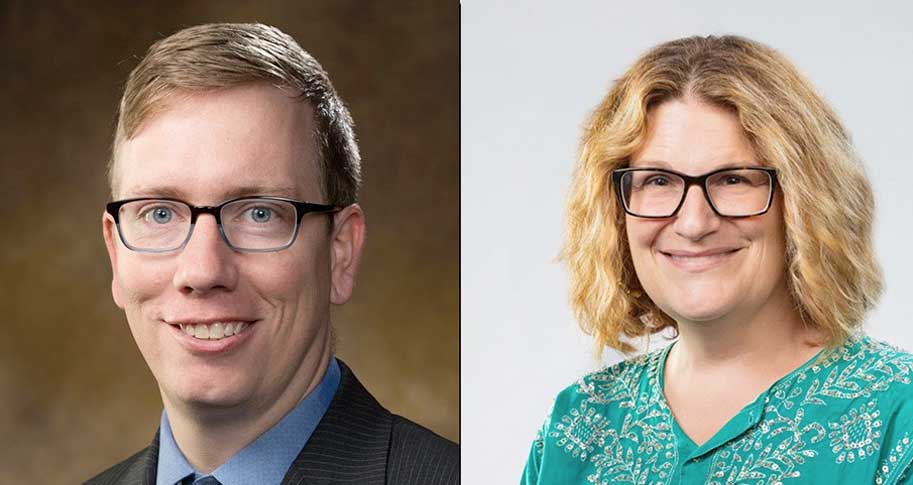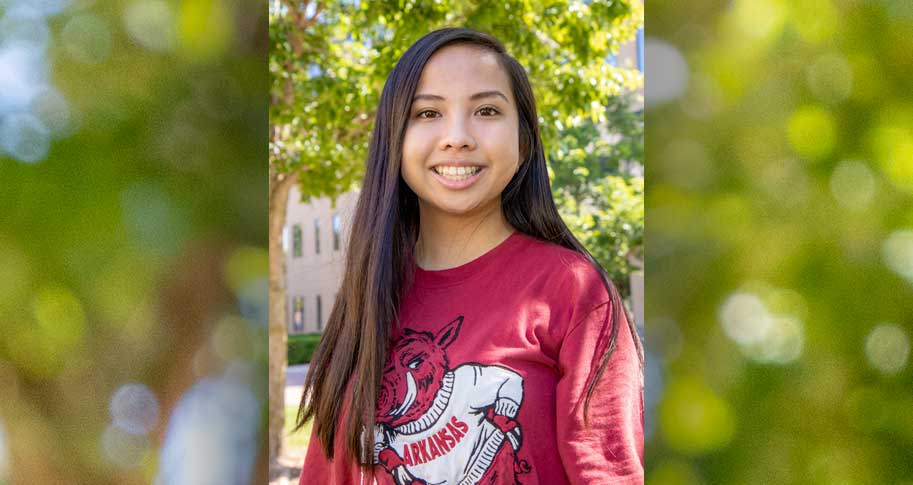
To break the ice with people she has just met, Joanna Campbell sometimes gives them one of the many stickers she keeps in her desk. Each bears the name of her hometown, Olsztyn, and features a coat of arms with an image of St. Jacob the Elder, protector of the Polish city.
Olsztyn, located about three hours north of Warsaw, is the home of Cathedral Basilica of St. Jacob, built in the 14th century. The castle located in the Old Town can claim noted astronomer and mathematician Nicolaus Copernicus as one of its past residents. It’s a piece of her past she likes to share as she transitions to her new role as an assistant professor in the Department of Management at the Sam M. Walton College of Business. “Everyone in the whole college has been really friendly and helpful,” she says.
Campbell grew up learning English, having chosen it as her second language — a requirement in Polish schools. She left her native country after high school graduation to attend college at Arizona State University.
Like many undergraduates, she dabbled with different courses before settling on two majors – finance and economics – and earned degrees in both. She says she worked in an office job for a couple of years, but it wasn’t for her. “I really missed academia,” she says.
She was accepted in the management doctoral program at the Mays Business School at Texas A&M University and graduated this past spring.
Campbell, who joined the management department in July, is spending the fall semester on campus devoted solely to her research. Her interests include corporate governance, top managers, stakeholder management and innovation. Campbell’s research has been published in Strategic Management Journal and Journal of International Business Studies. She says she is excited when her research findings can benefit the real world.
For example, in a co-authored paper forthcoming in Strategic Management Journal, she and her colleagues examined the effects a new rule introduced by the Securities and Exchange Commission in 2010 that would allow certain shareholders to nominate directors to a company’s board. The rule was challenged in court, and one of the arguments used was that there was insufficient evidence the rule would improve shareholder value. “Our findings consistently show that the rule benefits shareholders, especially for firms with lower board independence or greater CEO control,” she says, adding that she hopes to share her findings with the SEC.
Then, in the spring, she will bring her knowledge to the classroom when she begins teaching the Business Strategy course.
This knowledge is enhanced by her husband, Colin Campbell, who is a finance professor at Miami University in Oxford, Ohio. She says commuting to be with each other has been par for the course – ever since he graduated before her and moved away to accept a job, while she remained to finish her doctorate at Texas A&M. Still, they manage to spend weekends, summers and Christmas breaks together, which may include running and playing tennis at Wilson Park in Fayetteville.
Sometimes, they even collaborate on research. “We both agree we have the best jobs in the world,” she says.




